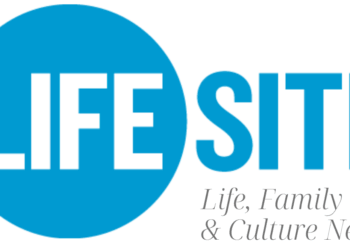OTTAWA (LifeSiteNews) – A Conservative MP’s private member’s bill that, if passed, would ban euthanasia for people with mental illness got the full support of the Euthanasia Prevention Coalition (EPC) this week.
The EPC held a press conference in the nation’s capital on Tuesday, calling for the expansion of the deadly practice to be stopped at once.
“Our takeaway message is this. No euthanasia for mental illness,” EPC president Gordon Friesen said.
Friesen said that when it comes to medical assistance in dying (MAiD), it was only supposed to be for people who “were dying” and who could “freely choose.” However, the reality is “unfortunately all of those promises have been broken.”
“What fuels support for MAiD is not that people believe that some patients should die,” said Friesen, but because they can make “free, informed, competent and adult choices.”
He noted how “euthanasia for the mentally ill does not fit that description.”
“For the symptoms of mental illness often make that sort of choice impossible,” he added.
The EPC had as a guest at its press conference Canadian Forces combat veteran Kelsi Sheren, who told her story of being offered MAiD as a way out and called out the “coercion” from officials.
Sheren noted how when she was 18 she “decided to put the uniform on” for her country.
“I understood that I might die for my country, but what I didn’t understand was that … one day, my own government would quietly offer to help me do it,” she said.
“When somebody is drowning in trauma and desperation, that’s not a choice, that’s coercion, wearing a polite face. I’ve spoken with veterans who have reached out for help and asked for therapy, for hope, for treatment, and what they got instead was an offer to end their lives,” she said.
Bill C-218 was introduced by Conservative MP Tamara Jansen and is now at second reading.
The Private Members Bill, C-218, or “An Act to amend the Criminal Code (medical assistance in dying (i.e., euthanasia),” was introduced by Jansen and passed its first reading on June 20.
LifeSiteNews reported on Bill C-218, noting that Jansen said allowing “medical assistance in dying” (MAID) – a euphemism for assisted suicide – for those with mental illness is “not healthcare, that’s not compassion, it’s abandonment.”
“Mental illness is treatable. Recovery is possible, but only if we show up and help,” she told fellow MPs.
Jansen’s Bill C-218 reads, “This enactment amends the Criminal Code to provide that a mental disorder is not a grievous and irremediable medical condition for which a person could receive medical assistance in dying.”
Pierre Poilievre, leader of Canada’s Conservative Party, supports Jansen’s bill, and for her “leading the effort with Bill C-218 to protect these people and get them proper health care and treatment, not assisted suicide.”
90,000 Canadians to date have taken their own life via MAiD
Assisted suicide was legalized by the Liberal government of former Prime Minister Justin Trudeau in 2016.
A new EPC report has revealed that Canada has euthanized 90,000 people since 2016.
Under the current law, assisted suicide is prohibited for minors and the mentally ill. Activists, however, have been pushing for these expansions with varying degrees of success.
In 2021, the Trudeau government expanded euthanasia from killing only “terminally ill” patients to allowing the chronically ill to qualify after the passage of Bill C-7. Since then, the government has sought to include those suffering solely from mental illness.
In February 2024, after pushback from pro-life, medical, and mental health groups, as well as most of Canada’s provinces, the federal government delayed the mental illness expansion until 2027.
The expansion of euthanasia for the mentally ill is slated to become law in 2027 due to the passage of Bill C-7.
















